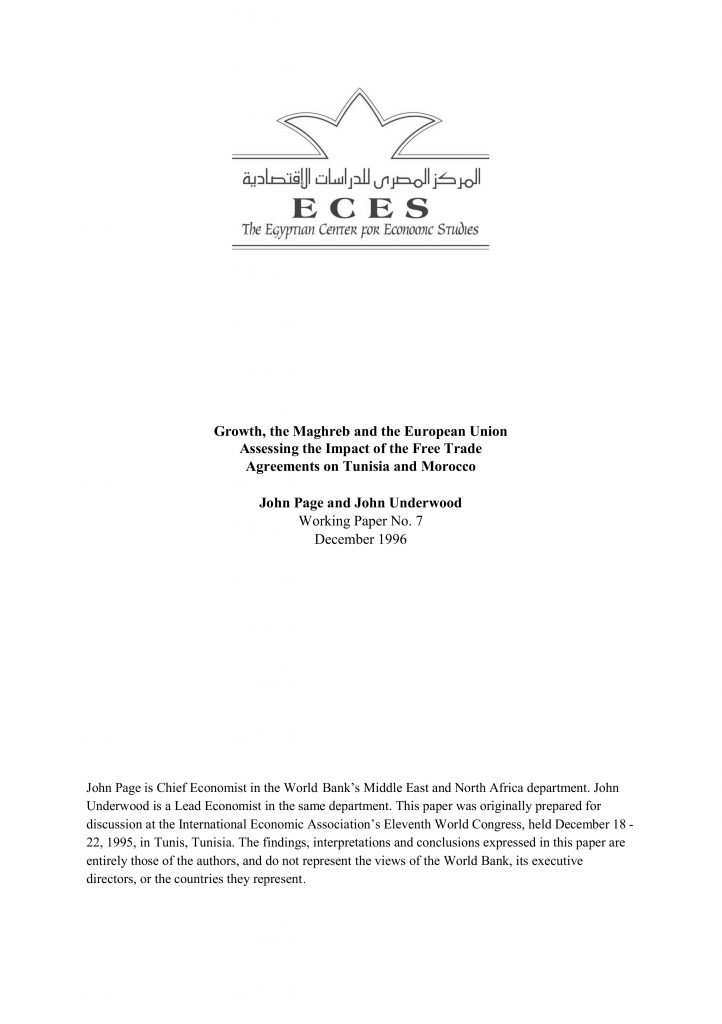Abstract
Morocco and Tunisia have both recently signed comprehensive integration agreements with the European Union (EU). These agreements consist of increased aid and technical assistance from the EU, in exchange for reductions in trade barriers over a period of 12 years on the p art of Morocco and Tunisia. The agreements are part of a broader European strategy to forge trade alliances and promote faster convergence of incomes between Europe’s transitional and developing economy neighbours and the EU.
This paper examines the growth impact of the EU Partnership agreements on Morocco and Tunisia—gains from trade liberalization, increased foreign investment, and improvements in productivity—looking at trends in both countries between 1960 -94, and at recent estimates of the welfare effects of trade liberalization under the agreements. The paper also examines the possible impact on investment behaviour, and options for accelerating productivity improvement. It concludes that increased investment and technology transfer are the greatest p otential benefits of the Euro-Med partnership, but that further policy actions by Morocco and Tunisia, complementary to those contained in the agreements, will be needed.

